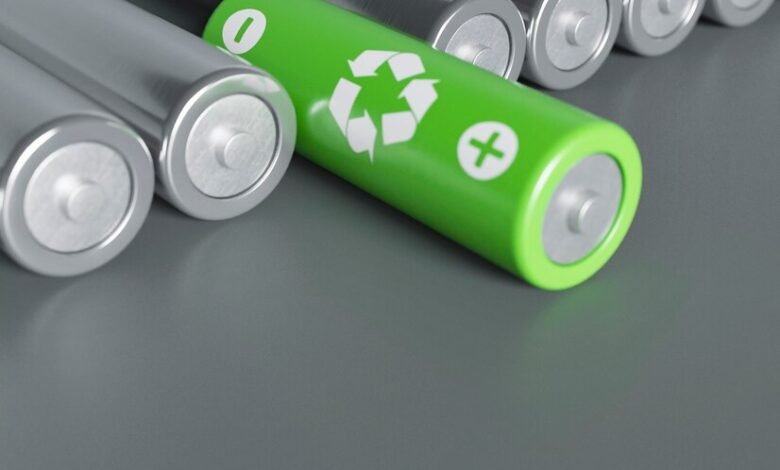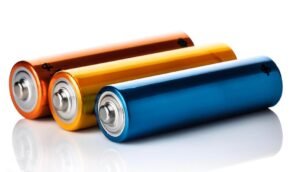How to Safely Dispose of Lithium Batteries: A Simple Guide

When you need to dispose of lithium batteries, it’s important to do it safely. These batteries power many of our favorite devices, like smartphones and laptops, but throwing them in the trash can harm our environment. Instead, finding the right way to get rid of them helps keep our planet clean and safe for everyone.
In this guide, we will explore easy steps on how to dispose of lithium batteries properly. We’ll share tips on where to recycle them, signs that it’s time to replace your battery, and why proper disposal is essential. Let’s learn together how to take care of our earth by recycling these powerful little energy sources!
Understanding Lithium Batteries: Why Proper Disposal Matters
Lithium batteries are special because they store a lot of energy in a small size. You can find them in many devices, such as smartphones, laptops, and even some toys. While these batteries are great for our gadgets, they can be dangerous if not disposed of correctly.
When you throw lithium batteries in the trash, they can leak harmful chemicals. These chemicals can get into the soil and water, causing problems for plants, animals, and people. That’s why it’s so important to know how to handle them properly when they are no longer useful.
By learning how to dispose of lithium batteries the right way, you help protect the environment. Recycling batteries keeps dangerous materials out of landfills. It also reduces the risk of fires and explosions caused by damaged batteries. So, remember, proper disposal is everyone’s job!
Signs It’s Time to Dispose of Lithium Batteries
Knowing when to replace your lithium battery is very important. If your device is not charging properly or dies quickly, it might be time for a new battery. Another clear sign is if the battery looks swollen or puffy. These signs show that the battery may not be safe to use anymore.
Also, be aware of any strange smells or leaks. If you notice anything unusual, stop using the device right away and check the battery. Recognizing these warning signs helps you take action before any accidents happen.
Here are some common signs to watch out for:
- Device won’t charge: If your phone or laptop won’t hold a charge, it’s time to check the battery.
- Battery swelling: If the battery looks larger than usual, it could be dangerous.
- Overheating: If the battery gets very hot, stop using it immediately.
- Leaks or strange smells: Any leaks or odd smells are signs that you should not use the battery anymore.
Taking action early can help you dispose of lithium batteries safely and protect your home.
How to Prepare Lithium Batteries for Safe Disposal
Preparing lithium batteries for recycling is simple and important. First, store your old batteries safely until you can recycle them. Use a bag or container that keeps them from leaking. This will help prevent any harmful materials from getting out.
If you have multiple batteries, it’s a good idea to tape the ends with clear tape. This helps keep them safe and stops them from touching other batteries or metal objects, which can cause short circuits.
Follow these steps to prepare your lithium batteries:
- Keep them cool and dry: Store your batteries away from heat and moisture to avoid damage.
- Use a separate container: If you have different types of batteries, keep them in separate containers.
- Don’t mix batteries: Mixing lithium batteries with regular batteries can be dangerous.
- Check recycling center rules: Before you go, make sure the recycling center accepts lithium batteries.
Taking these steps ensures that your batteries are ready for recycling when you are.
Where to Find Recycling Centers for Lithium Batteries

Finding places to recycle lithium batteries is easier than you think! Many stores, such as electronics shops or home improvement stores, have battery recycling bins. You can also check local recycling centers in your area for battery drop-off options.
Some cities hold special events for recycling batteries. These events are a great chance to learn more about proper disposal. You can meet people in your community who care about the environment too.
To help you find recycling locations, consider these options:
- Retail Stores: Many electronics and home improvement stores offer recycling services.
- Local Recycling Centers: Look up recycling centers in your area that accept lithium batteries.
- Community Events: Check your local community calendar for battery recycling events.
- School Programs: Ask your school if they have a battery recycling program in place.
By recycling your batteries, you help keep our planet safe and clean.
Common Mistakes to Avoid When Disposing of Lithium Batteries
Many people make mistakes when it comes to battery disposal. One common mistake is throwing lithium batteries in the regular trash. This can harm the environment and may even cause fires. It’s essential to remember that these batteries need special care.
Another mistake is mixing different types of batteries together. Each battery type has its own disposal method. By mixing them, you may accidentally create a dangerous situation. Always keep lithium batteries separate from other batteries.
Here are some mistakes to avoid:
- Throwing batteries in the trash: Always recycle lithium batteries instead of tossing them in the garbage.
- Not checking recycling rules: Different places have different rules about battery recycling, so check before you go.
- Ignoring warning signs: If your battery looks damaged or smells strange, don’t use it anymore.
Being aware of these mistakes will help you dispose of lithium batteries safely and correctly.
The Environmental Impact of Improper Lithium Battery Disposal
Not disposing of lithium batteries properly can lead to serious problems for the environment. When thrown in the trash, they can leak toxic materials into the soil and water. This pollution can harm plants, animals, and even humans.
Improper disposal can also cause fires. Lithium batteries can spark if damaged or if they come into contact with other metals. This is why it’s crucial to know how to handle batteries responsibly.
The environmental impact of improper disposal includes:
- Soil pollution: Toxic chemicals from batteries can seep into the ground.
- Water contamination: Harmful materials can wash into rivers and lakes.
- Wildlife harm: Animals can be poisoned by chemicals or injured by battery parts.
- Fire hazards: Damaged batteries can catch fire, putting people and property at risk.
When we don’t take care of our batteries, it puts everyone at risk. However, recycling can help avoid these issues and protect our earth.
Myths About Lithium Battery Disposal: What You Need to Know
There are many myths about how to dispose of lithium batteries. One common myth is that it’s okay to throw them in the regular trash. This is not true! Throwing them away can harm the environment and may even cause fires.
Another myth is that all batteries are the same. This is wrong because lithium batteries require special care. Knowing these myths helps us make better choices about disposal.
Here are some common myths to be aware of:
- Myth 1: It’s safe to throw lithium batteries in the trash.
- Myth 2: All batteries can be recycled in the same way.
- Myth 3: You can store damaged batteries for a long time before recycling.
By understanding the truth about battery disposal, you can help spread awareness. This knowledge ensures that everyone knows how to dispose of lithium batteries safely.
Step-by-Step Guide on How to Dispose of Lithium Batteries
Disposing of lithium batteries doesn’t have to be hard. First, when you notice a battery is no longer working, check if it’s rechargeable. If it is, charge it again before disposal. If it still doesn’t work, it’s time to recycle it.
Next, find a local recycling location. Take the old battery there instead of throwing it in the trash. It is helpful to store your old batteries in a safe place, away from heat and moisture, until you can recycle them.
Here’s a simple step-by-step guide:
- Check your battery: Determine if it’s rechargeable or non-rechargeable.
- Find a recycling center: Look up local recycling options that accept lithium batteries.
- Store batteries safely: Keep them in a cool, dry place until you can recycle them.
- Transport carefully: Use a bag or container to transport the batteries without leaks.
Following these steps will ensure that you know how to dispose of lithium batteries properly.
Tips for Storing Lithium Batteries Until Disposal

Storing lithium batteries safely is just as important as disposing of them. First, keep them in a cool, dry place. Heat can cause batteries to break down faster, so avoid putting them near heaters or in direct sunlight.
Next, always keep batteries in their original packaging. This can help prevent them from touching each other, which can cause short circuits. If you have multiple batteries, store them separately to keep them safe.
Here are some helpful tips for storing batteries:
- Store in a cool place: Keep them away from heat sources and direct sunlight.
- Use original packaging: This helps prevent contact between batteries.
- Separate storage: Keep different types of batteries in separate containers.
- Check for damage: Regularly inspect batteries for signs of damage or leaks.
By storing lithium batteries safely, you can help make sure they stay in good condition until you’re ready to dispose of them.
Conclusion
Knowing how to dispose of lithium batteries properly is very important for everyone. These batteries power our favorite devices, but when they are no longer working, we must handle them carefully. By recycling them, we keep our planet clean and safe for plants, animals, and people.
It’s easy to find places to recycle, and every little bit helps. Let’s work together to make sure we are taking care of our environment. Remember to store your batteries safely and look for recycling centers nearby. By sharing what we learn, we can help our friends and family know how to dispose of lithium batteries the right way. Together, we can create a cleaner and healthier world for
Read More: internet chicks



